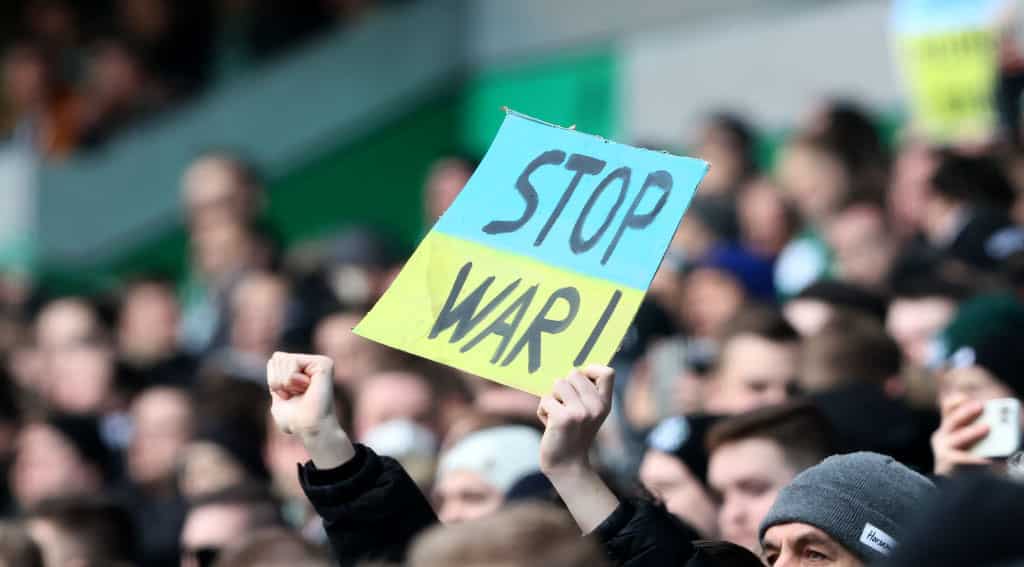 (Photo by Martin Rose/Getty Images)
(Photo by Martin Rose/Getty Images) We are so repulsed by violence that our instinct is to call for its eradication. We cry out for “no more war” as if that were even possible. When we see another mass shooting, we pray for the day when they will no longer exist.
This is a human response—when we witness something we both hate and fear, it’s natural to plead for “No more!” In the same way that we expect zero violence in our own lives, we ask for the same in our larger world.
Deep down, of course, we know that violence is both disgusting and impossible to eradicate. It is a sad but integral part of the human condition.
The Torah has a complicated relationship with violence.
Writing about the Torah portion Matot, which chronicles deadly violence against the Midianites, Matthew Schultz wonders: “What does our liberation from bondage even mean if it has not liberated us from violence?”
The Torah’s answer, he writes, is “less than clear, and perhaps less than comforting as well.”
The Torah acknowledges that violence pollutes us, as when it asserts that the slaying of the Midianites contaminated its perpetrators:
“You shall then stay outside the camp seven days; every one among you or among your captives who has slain a person or touched a corpse shall cleanse himself on the third and seventh days.” (Numbers 31:19)
However, Schultz writes, violence “is not universally condemned by God.”
He cites the Torah portion which “goes on to give laws concerning how to adjudicate cases of murder and manslaughter, introducing the concept of a ‘refuge city’ to which a manslayer, who incurred his guilt only unwittingly, may live free from the threat of vengeance from the kin of the person whom he slayed.”
This casts the initial act of violence against the Midianites, “whether read as a righteous act of vengeance or as a psychologically inflected act of rage, in a new light. Violence, the text seems to be saying, is a part of life—something to be managed rather than extinguished.”
Shultz asks: Is this a satisfying message, an uplifting one?
For his family, with whom he studied the Torah portion, the answer to both questions was no.
I can’t help thinking that deep down, having “unrealistic” children who want to eradicate all violence must put a smile on God’s face.
This is understandable. Accepting violence as a part of life is not a truth we want to embrace, especially when the Almighty God comes across as an accomplice. Maybe violence is such a dirty word some of us don’t want it to pollute the Creator Himself.
But the message that violence is a part of life, that it is something to be managed rather than extinguished, has something going for it. “It is honest,” Shultz concludes, “and for this reason, perhaps it has something to teach.”
Indeed, the hard truth is the messy message of an honest God. But I can’t help thinking that deep down, having “unrealistic” children who want to eradicate all violence must put a smile on God’s face.
Shabbat shalom.























 More news and opinions than at a Shabbat dinner, right in your inbox.
More news and opinions than at a Shabbat dinner, right in your inbox.